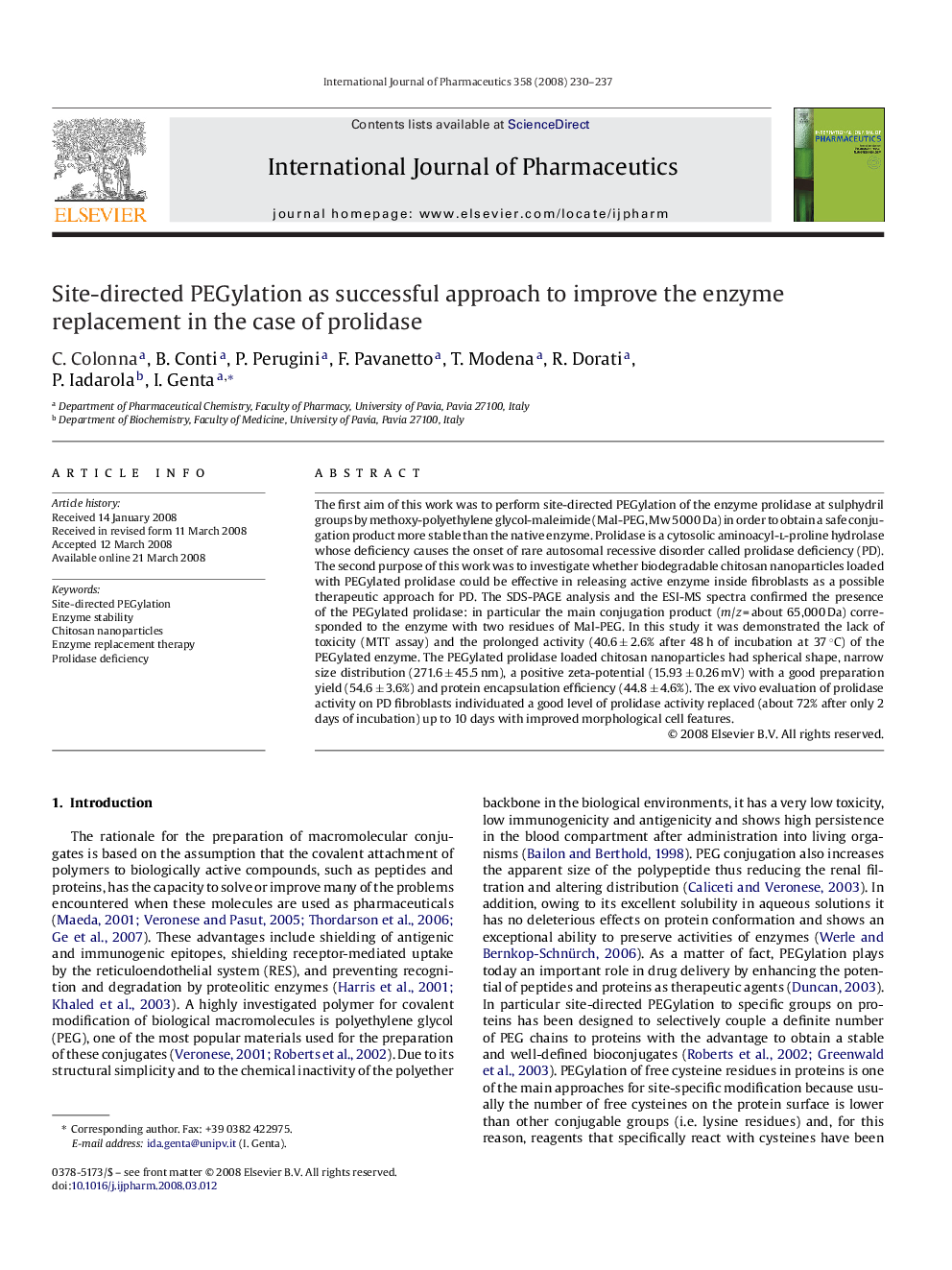| Article ID | Journal | Published Year | Pages | File Type |
|---|---|---|---|---|
| 2505405 | International Journal of Pharmaceutics | 2008 | 8 Pages |
Abstract
The first aim of this work was to perform site-directed PEGylation of the enzyme prolidase at sulphydril groups by methoxy-polyethylene glycol-maleimide (Mal-PEG, Mw 5000 Da) in order to obtain a safe conjugation product more stable than the native enzyme. Prolidase is a cytosolic aminoacyl-l-proline hydrolase whose deficiency causes the onset of rare autosomal recessive disorder called prolidase deficiency (PD). The second purpose of this work was to investigate whether biodegradable chitosan nanoparticles loaded with PEGylated prolidase could be effective in releasing active enzyme inside fibroblasts as a possible therapeutic approach for PD. The SDS-PAGE analysis and the ESI-MS spectra confirmed the presence of the PEGylated prolidase: in particular the main conjugation product (m/z = about 65,000 Da) corresponded to the enzyme with two residues of Mal-PEG. In this study it was demonstrated the lack of toxicity (MTT assay) and the prolonged activity (40.6 ± 2.6% after 48 h of incubation at 37 °C) of the PEGylated enzyme. The PEGylated prolidase loaded chitosan nanoparticles had spherical shape, narrow size distribution (271.6 ± 45.5 nm), a positive zeta-potential (15.93 ± 0.26 mV) with a good preparation yield (54.6 ± 3.6%) and protein encapsulation efficiency (44.8 ± 4.6%). The ex vivo evaluation of prolidase activity on PD fibroblasts individuated a good level of prolidase activity replaced (about 72% after only 2 days of incubation) up to 10 days with improved morphological cell features.
Related Topics
Health Sciences
Pharmacology, Toxicology and Pharmaceutical Science
Pharmaceutical Science
Authors
C. Colonna, B. Conti, P. Perugini, F. Pavanetto, T. Modena, R. Dorati, P. Iadarola, I. Genta,
